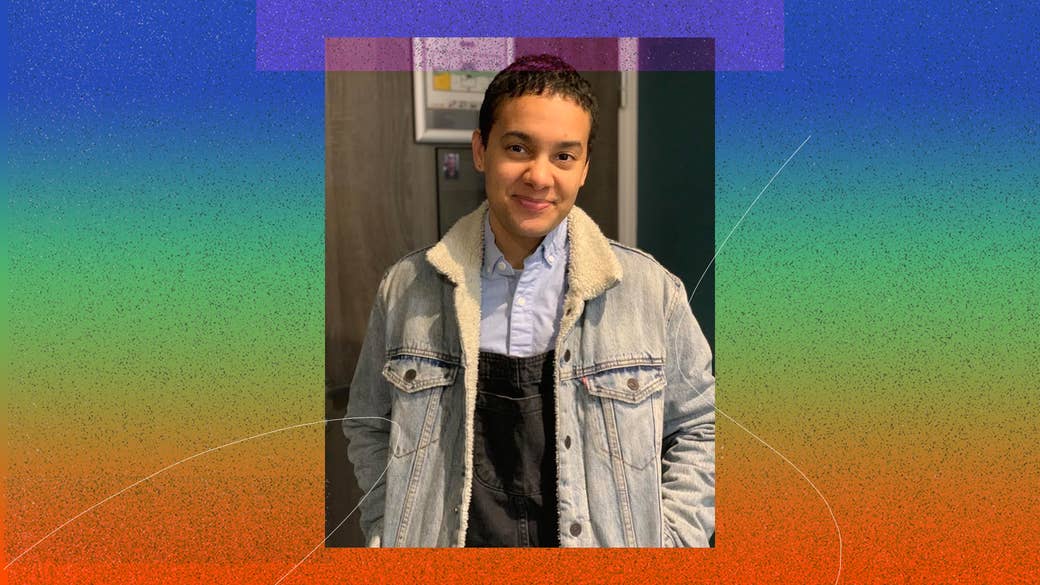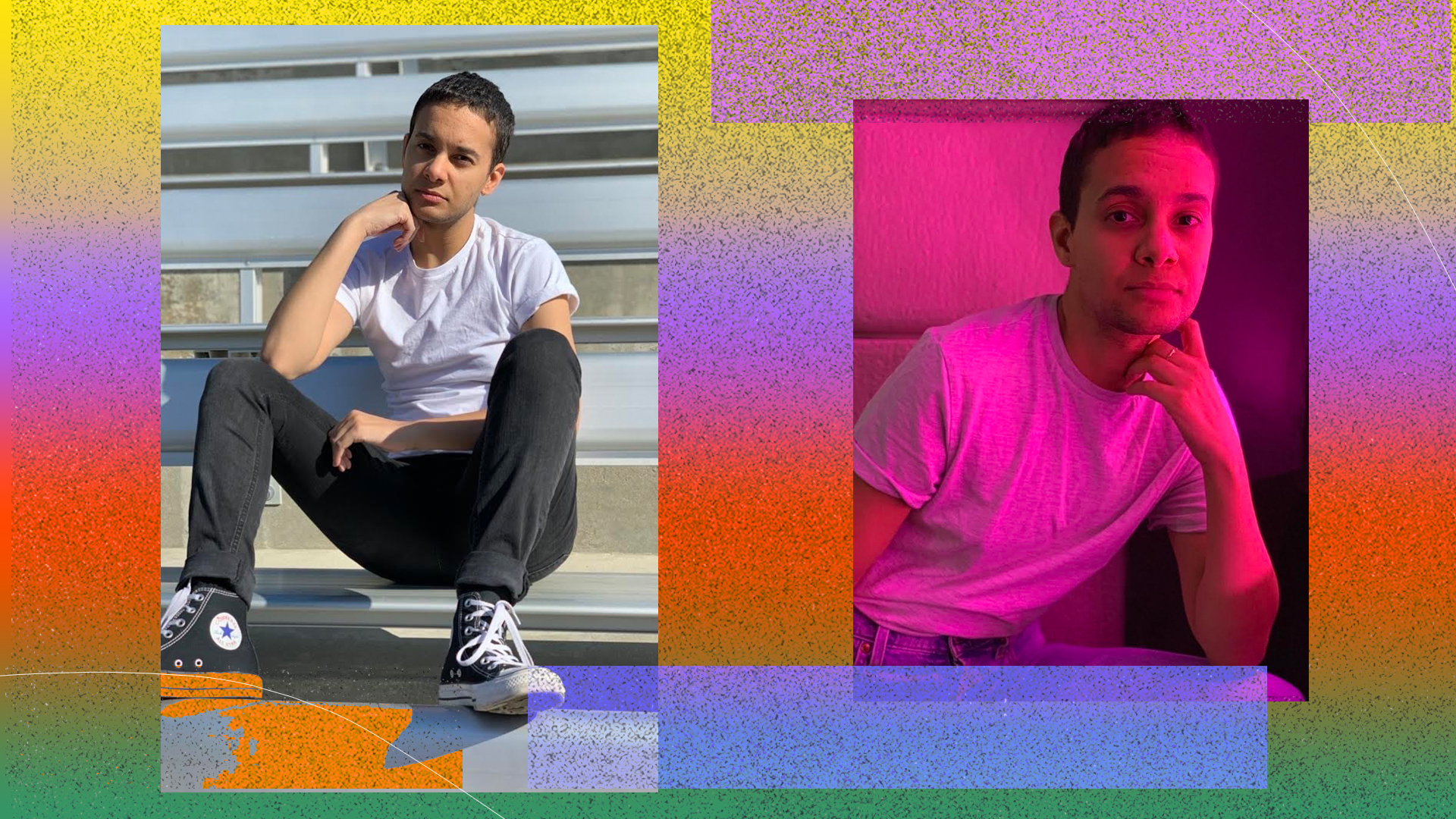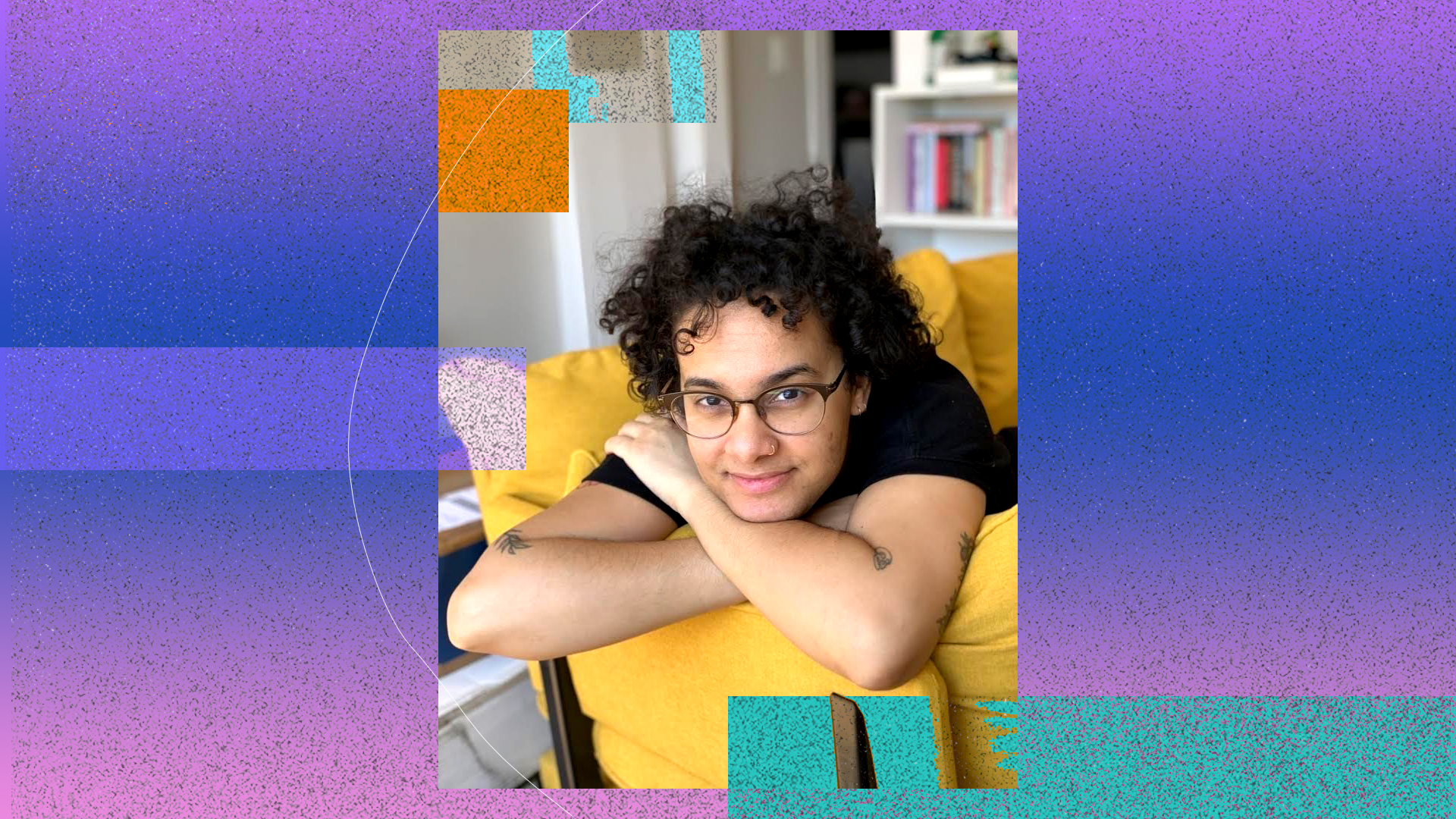
Traversing the world as a trans person is like doing everything twofold. There’s a sense of being acutely perceived, and within that perception there’s an immense joy and an amorphous weight. The heaviness isn’t always bad, but it’s there—in the form of people earnestly wanting, or refusing, to engage with transness, and in either case expecting your availability.
Tyler Ford had been writing for Rookie Mag when they were thrust into the spotlight as the expert of all things non-binary—a role they didn’t ask for, but that they ultimately found a lot of purpose in. It was around the time that magazines and TV shows started discussing transness, and by then Ford already had a portfolio of writing on “basically what is non-binary, what it means.” So they became the go-to talent for speaking opportunities, writing, and acting gigs. Basically, “my job just became being the trans person in the media.”
And at first that meant consciously educating cis people on transness; but over time it became about helping other trans people understand themselves, as well as just existing publicly as a Black trans person, taking on the role of being visible. “I think that is just a really important part of what we do for each other. Existing as yourself and presenting as you want to in the world, it just creates more possibility for people like you and future generations,” Ford says. And that’s a job in and of itself. Offering up so much of themself, Ford went on to become a founding editor of them., writing about things like queer sex and trans rights, and they made their TV debut on Ryan Murphy’s The Glee Project 2. They continue to write and consult, and use their platform as an advocate, with the ultimate hope of helping other trans people “articulate who they are and their desires and their identities.”
We talked to Ford about trans visibility, deciding on what time means to them as a queer person, and more, below.

Ford on the importance of trans visibility:
I think that is just a really important part of what we do for each other. Existing as yourself and presenting as you want to in the world, it just creates more possibility for people like you and future people like you and future generations, whether people have come out or not, just to feel like they can be themselves and that they can find community and find friends and find family and support. I hope I help queer trans people understand themselves and that they have a place in the world and along the way, I know I’m also helping cis people and straight people understand the queer trans people in their lives, which is, at this point, it’s a bonus. For me, the point is my people.
On the impact and intent of writing about transness:
In terms of writing, and especially writing about trans stuff and queer stuff, it was mostly me trying to get people to understand me and how to treat trans people like we’re people and how to use my pronouns. I had that youthful energy where, “You’re not understanding me, I want to be treated normally, and I’ll show you how.”
And as I did that for myself and publicly in terms of writing or speaking or interviews, I found that it really helped other people articulate their own identities and figure out what they wanted for themselves. So then it became like, “OK, I’m doing this for myself, but it’s helping all of these people. So I’m just going to continue on that path and try to help media, the larger world, understand what it means to be non-binary or trans and just help people feel more comfortable.”

On queer timelines:
I think that queer timelines and trans timelines and just the concept of time in general and the way that we think about time or inhabit time, it’s just totally different from cis straight people’s timelines. There are so many cultural milestones like a bar/bat mitzvah, a sweet 16, a first love and a high school sweetheart… I’m Jewish. I was never bat mitzvahed obviously, because I didn’t want to become a woman.
And that’s just one of many things that I never felt like I was behind on, because I wasn’t super religious, but sometimes it feels like an alternate timeline. I try not to think about it in terms of being behind or being at a different pace, especially now that I’m older because it’s not even about the timing or the pace, it’s just about a totally different life or way of living. I have this freedom where I’m not on this track that a lot of people abide by or live according to. I have to decide for myself what I want: What is that going to look like, who is with me on that path? What do I want to fill my life with?
There’s no morality, there’s no moral imperative. It’s sort of just like being on the carousel versus being on a roller coaster. Not to say that cis straight people have simple circular lives, but it’s sort of like, where is my track going and what does this hill mean in regards to my life in general, and also what does it mean in this moment? Where am I going once I reach the top of the drop? What am I looking down towards? It’s non-binary so to speak. It’s off the binary track.
On losing a generation of queer people to AIDS:
Even looking toward our own futures and models for our futures, we’ve lost so many people who we could have looked to, to show us the way or help us along and I think that also has had a really big impact on our generation of queer and trans people in terms of just having what could have been so many lovely, fulfilling relationships and guides and just sharing time, space, and seeing how queer people older than us are living their lives, and the paths that they’ve taken. We’ve just lost so many people and I think that also has made people feel a little out of time, out of step, because it’s like, “OK, well who can we look to, to model our own lives after?” Or just look to as an example.
I feel like that also has an impact that we just lost such a huge part of our community and I think that also has broken our timeline a little bit.

On clothing and presentation:
Clothes are still hard. I wear a lot of basics, like T-shirts and jeans and my little Doc Martens or just boots and sneakers and Birkenstocks. But it’s hard as a short transmasculine person to find things that don’t make me look like a child. And that’s been a challenge for most of my adult life. Especially because formal wear and “professional wear” is so gendered, I feel like all I’ve really got is the basics.
On a day where they feel embodied:
A good day is going to an independent bookstore. That’s my favorite. I love to read. Hanging out with friends, mostly just chilling, hanging out at someone’s house, talking shit, maybe watching videos or listening to music. Being in the sun. I love being in the sun.
On queer community they like to support:
I like to support queer bookstores or indie bookstores that carry a lot of work by queer and trans writers and artists. I like to buy books by queer and trans people. Skylight Books is my bookstore in LA. They carry a lot of stuff by queer and trans artists and it’s not just relegated to an LGBTQ section. So I appreciate that a lot. I’ve never been but I interviewed the owners of this coffee shop for a project last year for pride, but it’s a little indie cafe in Philadelphia called Mina’s World, which is so lovely and queer and trans owned and mostly, if not all, queer and trans employees, and they also sell artwork and books from people in their community and make a lot of their own homemade recipes. There’s an indie bookstore here in LA called Stories, it’s a used bookstore. They carry new and used and they’ve got a lot of queer stuff as well. Bluestockings in New York. Books Are Magic is not queer-owned but it’s a very lovely independent bookstore that is queer friendly.
On what they hope their work gives the world:
What I hope, and thankfully what I’ve heard from people, is just that I’ve helped them better understand themselves, better articulate who they are and their desires and their identities and just to be someone to look to. I’m not like, “Oh, I’m a role model.” It’s not even about that. It’s just about being a Black queer trans person in the world. I remember being a kid or being a teenager and a young adult and every person that you see who is gender nonconforming or trans, it’s like, “Oh, this is possible. This is just a thing.”

